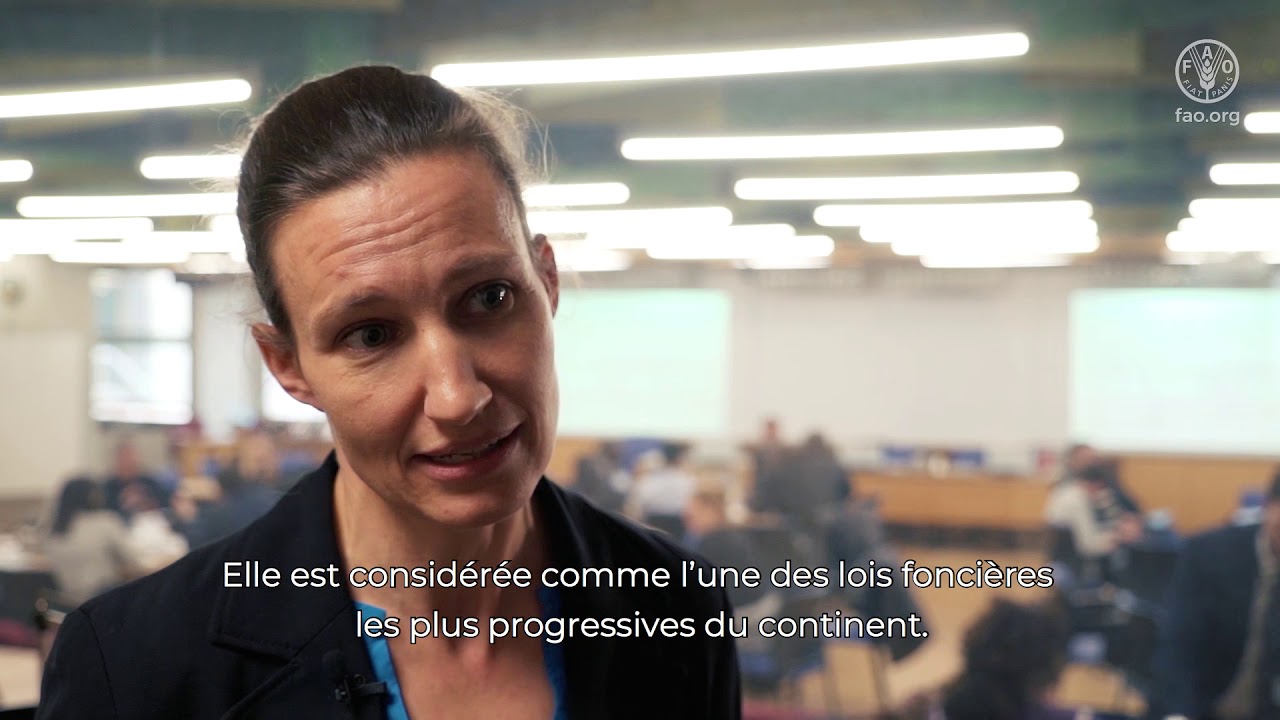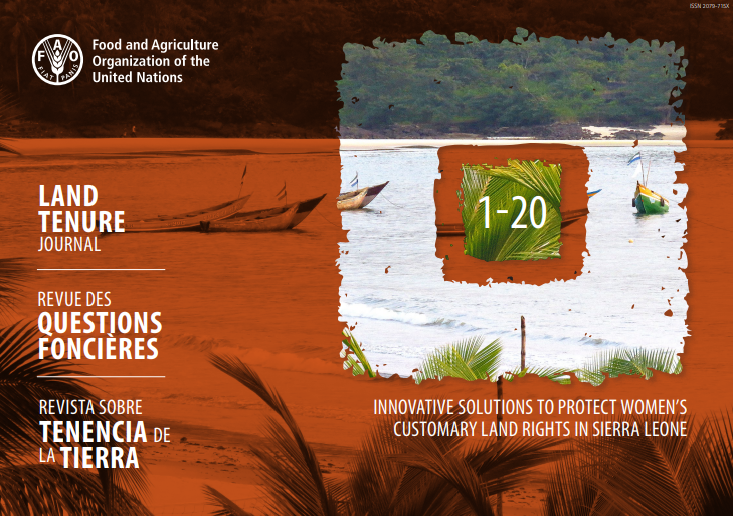Focal point
Location
The Food and Agriculture Organization of the United Nations leads international efforts to defeat hunger. Serving both developed and developing countries, FAO acts as a neutral forum where all nations meet as equals to negotiate agreements and debate policy. FAO is also a source of knowledge and information. We help developing countries and countries in transition modernize and improve agriculture, forestry and fisheries practices and ensure good nutrition for all. Since our founding in 1945, we have focused special attention on developing rural areas, home to 70 percent of the world's poor and hungry people.
Members:
Resources
Displaying 51 - 55 of 5074SUSTAINING LAND GOVERNANCE REFORMS Lessons from the European Union Land Governance Programme
By means of a Transversal Project, co-funded by the EU and the Swiss Agency for Development and Cooperation (SDC), the Food and Agriculture Organization of the United Nations (FAO) coordinates, supports and consolidates the implementation of the EU Land Governance Programme.
INNOVATIVE SOLUTIONS TO PROTECT WOMEN’S CUSTOMARY LAND RIGHTS IN SIERRA LEONE
Within the framework of implementing the Voluntary Guidelines on the Responsible Governance of Tenure of Land, Fisheries and Forests in the Context of National Food Security (VGGT), this paper summarizes the empirical findings from three sequentially related phases of the Food and Agriculture Organization’s (FAO) VGGT programme, implemented as a pilot project in 2018. The methodology used relied first on context analysis of the critical aspects influencing and hindering women´s land rights.
Le code foncier et domanial du Togo et les directives volontaires pour une gouvernance responsable des régimes fonciers. Guide et images à l'usage des zones rurales.
Ce guide en images sur les Directives Volontaires pour une gouvernance responsable des régimes fonciers et le Code Foncier et Domanial du Togo est un outil de renforcement des capacités des formateurs nationaux pour améliorer la gouvernance foncière au niveau des villages du Togo.
Final evaluation of the project “Adaptive management and monitoring of the Maghreb’s oases systems”
The Maghreb's oases systems provide a major contribution to the region's food security, economy and natural resources. Despite this potential, oasis ecosystems are threatened by a range of complex factors related to the expansion of agricultural land and increasing scarcity of water resources. The project, implemented by FAO in Tunisia, Morocco and Mauritania from May 2016 to December 2019, brought together key stakeholders to address the lack of available information on the status of oases and to advocate on factual bases shared by all stakeholders and verifiable in the field.











